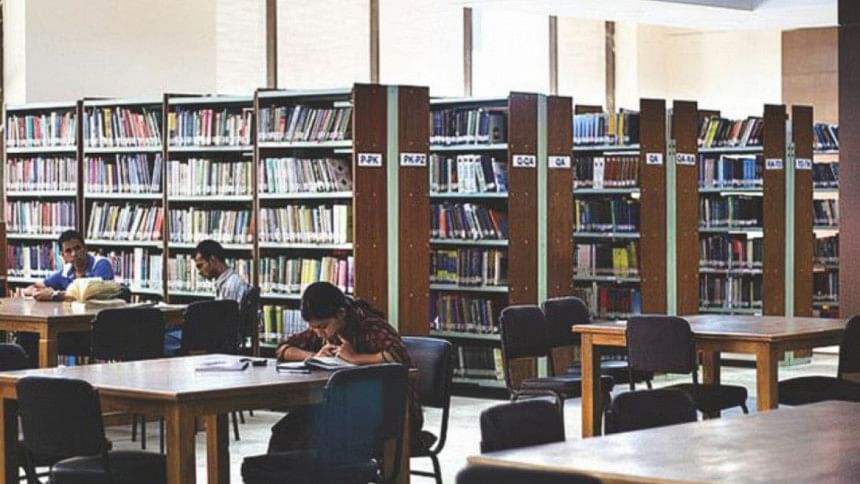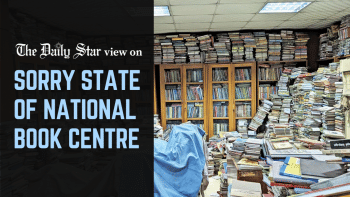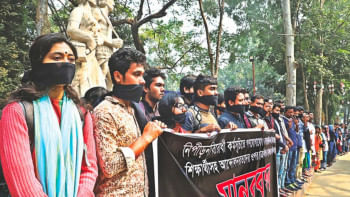Libraries will solidify our foundation as a smart nation

In an era dominated by technological advancements and digital distractions, the importance of libraries in fostering a reading culture and preserving cultural heritage cannot be overstated. We must reflect on our relationships with libraries and, more importantly, recognise their transformative power over our collective future. Beyond being traditional repositories of books, libraries in the 21st century have evolved into diverse hubs that address various information needs. In fact, in many countries, libraries and librarians are trusted, community-based entities fostering grassroots development and serving as sustainable local institutions.
Libraries are beacons of ethical and sustainable development, nurturing economic and digital growth, as well as moral and ethical values. As we witness the continuous threat of isolation driven by technological and economic forces, libraries emerge as vital public spaces that connect communities and bridge the gap between knowledge and power.
There are over 9,000 public libraries and more than 125,000 librarians across the United States, all of which offer a wide variety of resources and services to the communities they serve.
Similarly, Australia has a fantastic network of public libraries across all its states. Users can access an extensive catalogue of print, electronic, and multimedia resources as well as free Wi-Fi, computers, printing services, study spaces, groups, classes, and much more by joining a single library.
According to the International Federation of Library Associations and Institutions, neighbouring India also has an impressive library network, with approximately 1.5 million libraries, including 1.3 million school libraries—the highest single number of libraries globally. The country also hosts over 160,000 public and community libraries, with one public library for every 8,333 people, which is more than double the Asian and global averages.
The Development and Access to Information report draws on various indicators highlighting where countries stand on four key pillars: access to information, connectivity, equality, skills and rights.
In Sri Lanka, according to the National Library and Document Services Board (NLDSB), there are approximately 1,500 public libraries—one for every 14,595 people. The respective local governments and urban and municipal councils govern all public libraries.
Compared to India and Sri Lanka, Bangladesh has only 71 public libraries, a disproportionately low number considering the population—resulting in there being one public library for every 2,402,143 people. Additionally, about 1,400 public and community libraries have been established through private initiatives across the country. But this still means there is one library per 123,538 people. Plus, despite their potential impact, these libraries face inadequate funding.
With increased government support, the existing libraries could offer better services to their respective local communities. The wealthier Bangladeshi citizens could play a crucial role in supporting the private libraries, helping to develop a reading culture and a great nation.
In 2023, under the Ministry of Cultural Affairs, grants were distributed to private libraries, with A-category libraries receiving Tk 70,000 (divided equally between bank accounts and book provisions), B-category libraries receiving Tk 55,000, and C-category libraries being allocated Tk 47,500. However, the current annual government funding given to these libraries is a mere drop in the ocean. To address this critical gap, there is an urgent call for a substantial increase in government funding dedicated to rural libraries.
Prime Minister Sheikh Hasina emphasises the importance of libraries in building the nation's rich cultural heritage. The government's efforts in setting up Bangabandhu Corners and Mujib Corners in public and private libraries across the country demonstrate a commitment to preserving the correct history of the Liberation War and making libraries more accessible and relevant to future generations.
But while Bangladesh sees a rise in reading habits, a significant percentage only use libraries for studying guidebooks tailored for the highly competitive BCS exams.
With only 71 government libraries for the population of 18 crore, the call for more libraries resonates as a fundamental necessity. It will be an investment in the nation's intellectual capital, ensuring that every citizen can access knowledge within a book's pages regardless of their location or background.
The concept of a smart nation, intertwined with technological advancement and an informed citizenry, is incomplete without addressing the disparities between urban and rural areas. Expanding library facilities in rural Bangladesh will be a strategic step towards building a smart nation from the grassroots. Let this day serve as a reminder that the true wealth of a nation lies not just in its economic and digital prosperity but in the minds and hearts of its people, which are enriched by the treasures found within the walls of libraries.
Prodip Roy is library officer at RMIT University Library in Melbourne, Australia.
Views expressed in this article are the author's own.
Follow The Daily Star Opinion on Facebook for the latest opinions, commentaries and analyses by experts and professionals. To contribute your article or letter to The Daily Star Opinion, see our guidelines for submission.

 For all latest news, follow The Daily Star's Google News channel.
For all latest news, follow The Daily Star's Google News channel. 












Comments